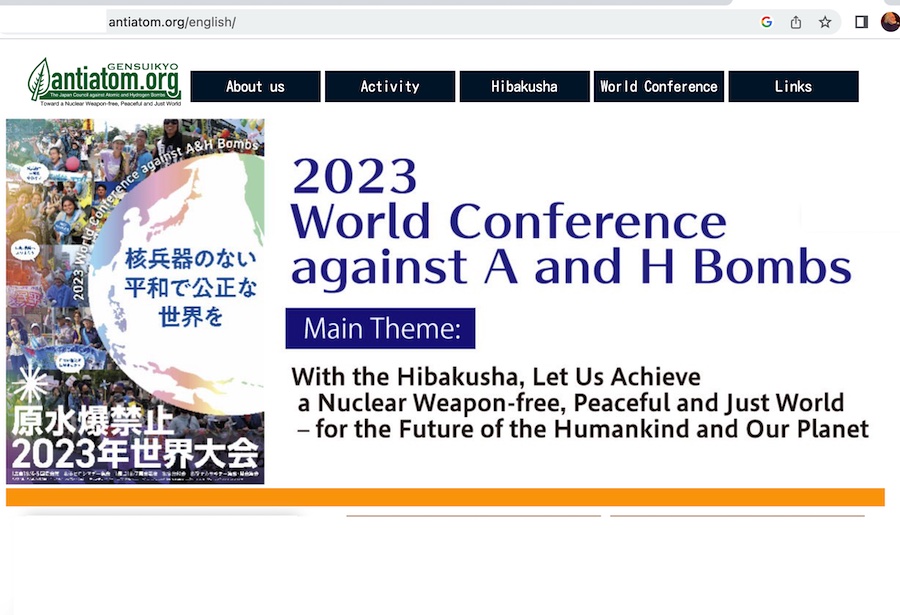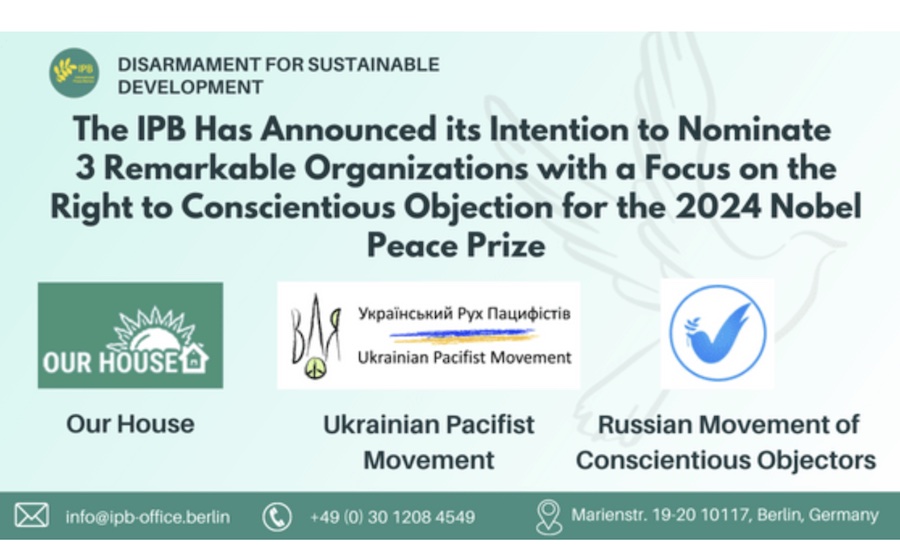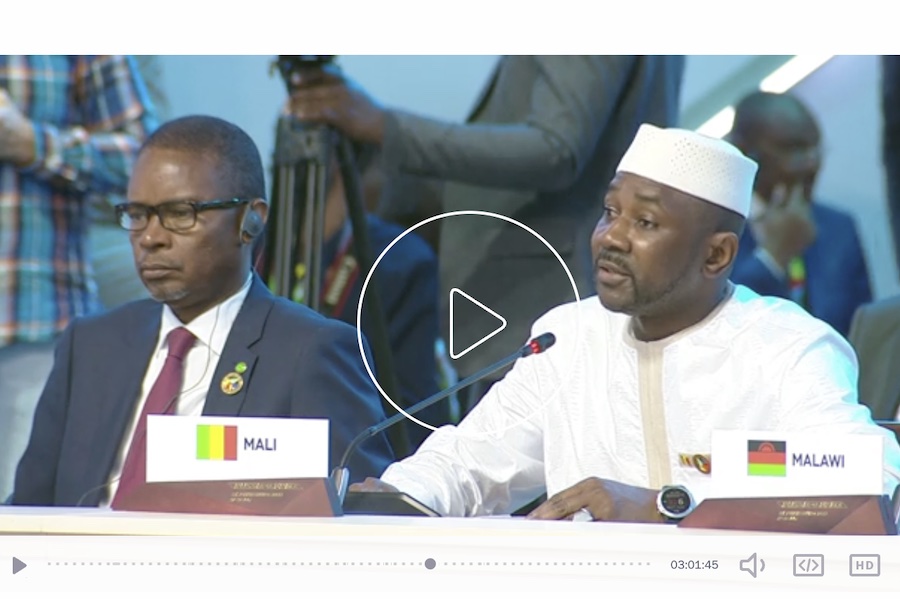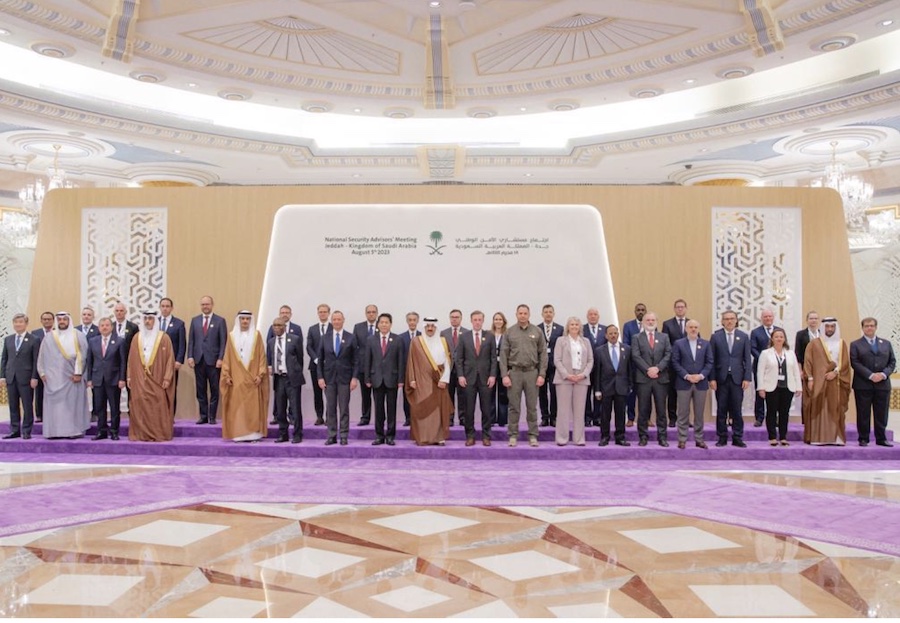DISARMAMENT & SECURITY .
An article from The United Nations
As United Nations-led talks on nuclear disarmament continued in Geneva, New York and Vienna, UN Secretary-General António Guterres warned on Sunday that “the drums of nuclear war are beating once again”.
In a message to mark the 78th anniversary of the atomic bombing of Hiroshima, Mr. Guterres urged the international community to learn from the “nuclear cataclysm” that befell the Japanese city on 6 August 1945.

Secretary-General Guterres
The drums of nuclear war are beating once again; mistrust and division are on the rise,” the UN chief said in a statement to the Hiroshima Peace Memorial, delivered by UN’s High Representative for Disarmament Affairs, Izumi Nakamitsu. “The nuclear shadow that loomed over the Cold War has re-emerged. And some countries are recklessly rattling the nuclear sabre once again, threatening to use these tools of annihilation.”
UN chief’s peace agenda
Pending the total elimination of all nuclear weapons, Mr. Guterres appealed to the international community to speak as one, as outlined in his New Agenda for Peace. Launched in July this year, the Agenda calls on Member States to urgently recommit to pursuing a world free of nuclear weapons and to reinforce the global norms against their use and proliferation.
“States possessing nuclear weapons must commit to never use them,” he insisted, as he stressed the UN’s commitment to continue working to strengthen global rules on disarmament and non-proliferation, notably the Treaty on Non-Proliferation of Nuclear Weapons (NPT) and the Treaty on the Prohibition of Nuclear Weapons.
NPT talks are taking place at the UN in the Austrian capital until 11 August, where Ms. Nakamitsu reiterated her warning to the forum that not “since the depths of the Cold War” has the risk of a nuclear weapon being used so high – just as the rules-based order intended to prevent their use has never been “so fragile”.
“This is, to a large extent, because of the volatile times in which we live,” Ms. Nakamitsu continued, pointing to the “existential” threat facing the world today, which is the result of “the highest level of geopolitical competition, rising tensions and deepening divisions among major powers in decades”.
(Continued in right column)
Can we abolish all nuclear weapons?
(Continued from left column)
Trillion dollar question
Coupled with rising global tensions is a record level of world military expenditure which reportedly reached a $2,240 billion in 2022.
This situation has led to an increased emphasis on nuclear weapons, “through modernization programmes, expanded doctrines, allegations of growing stockpiles and most alarmingly…threats to use them”, explained the UN High Representative for Disarmament Affairs.
“The fact that in the last 12 months nuclear weapons have openly been used as tools of coercion should worry us all,” she added.
The 1968 Nuclear Non-proliferation Treaty (NPT) is one of the only international agreements signed by both nuclear and non-nuclear states, aimed at preventing the spread of nuclear weapons and furthering the goal of nuclear disarmament.
After entering into force in 1970, 191 states have since become party to the treaty – the most signatories of any arms limitation agreement.
Bold goals
The treaty centres on the idea that non-nuclear States agree to never acquire weapons and nuclear-weapons states in exchange agree to share the benefits of the technology, whilst pursuing efforts towards disarmament and elimination of nuclear arsenals.
In addition to the Vienna talks now under way and which come ahead of the NPT’s five-yearly review in 2026, countries have also exchanged on disarmament and non-proliferation issues at the UN’s Conference on Disarmament in Geneva in the past week.
In recent days – and despite ongoing concerns that the Conference remains deadlocked by geopolitical developments – the forum’s 65 Member States heard briefings from the UN Office for Disarmament Affairs (UNODA) and the United Nations Institute for Disarmament Research (UNIDIR) on the use of artificial intelligence (AI) in the battlefield.
The aim of such discussions is to establish a mechanism that allows for regular multilateral dialogue and the inclusion of the views of countries that are not actively involved in the development of artificial intelligence, to ensure the responsible development and deployment of AI in the military domain.
The Conference on Disarmament – which was established in 1979 – is not formally a UN body but reports annually, or more frequently as appropriate, to the UN General Assembly.Its remit reflects the Organization’s conviction that disarmament and non-proliferation remain indispensable tools to create a security environment that is favourable to human development, as enshrined in the UN Charter.
In addition to convening the Conference on Disarmament, Member States gather in Geneva to discuss a range of multilateral disarmament agreements and conferences including the Anti-Personnel Landmine Convention (APLC), the Biological Weapons Convention (BWC), The Convention on Cluster Munitions, The Convention on Certain Conventional Weapons (CCW), as well as NPT review panels.








